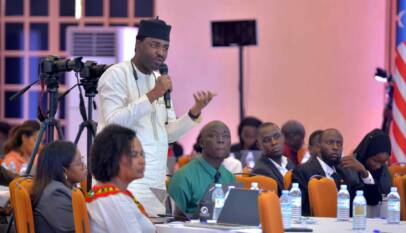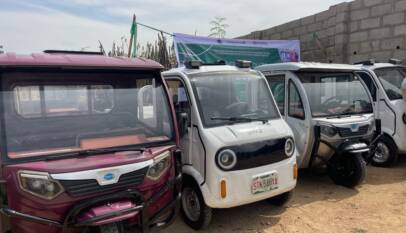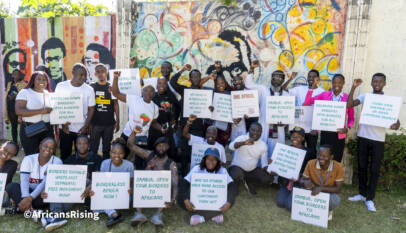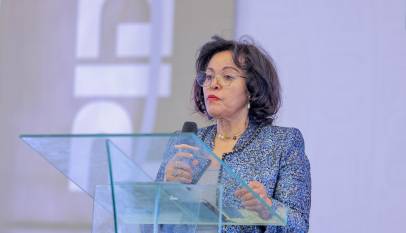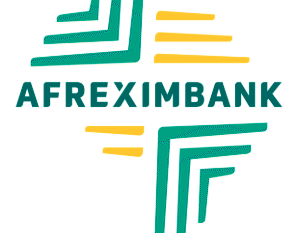Propcom+: Driving Rural Prosperity Through Climate-Smart Agriculture in Nigeria
The UK Foreign, Commonwealth and Development Office (FCDO)-funded Propcom+ programme is transforming the livelihoods of Nigerian rural farmers and entrepreneurs, aiming to reach over 4 million rural farmers by 2030 —half of them women—by helping them adapt to climate risks, increase productivity, and safeguard natural ecosystems.
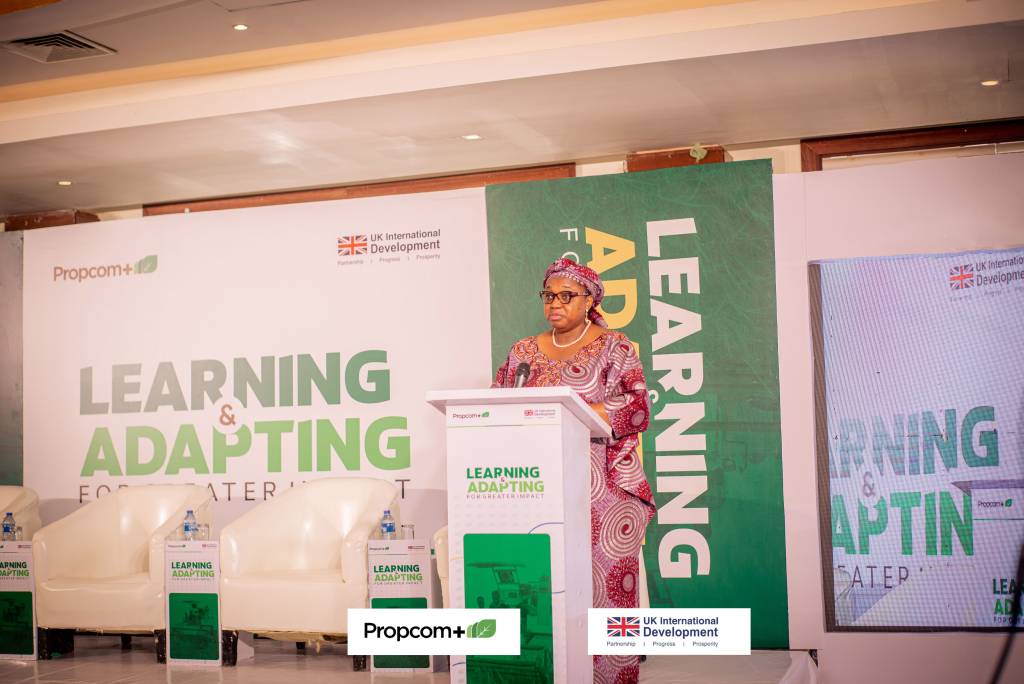
The UK’s Foreign, Commonwealth and Development Office’s Propcom+ is an eight-year (2023 – 2030) climate-smart agricultural programme focused on transforming Nigeria’s agricultural and land use systems into resilient, sustainable engines of growth. The goal of the programme, which prides itself as benefiting people, climate, and nature, is to empower over 4 million rural farmers—50% of them women—to adapt to climate risks, boost productivity, and protect natural ecosystems.
Propcom+ is already delivering practical innovations that are transforming the livelihoods of Nigerian smallholder farmers and entrepreneurs. By promoting the use of climate-smart, biofortified seeds through local outgrowers and facilitating last-mile delivery of livestock vaccines via solar-powered fridges and trained Community Animal Health Workers (CAHWs), the programme is creating jobs, increasing yields, and protecting livestock in some of the country’s most underserved areas.
The initiative runs on a three-pronged (3P) strategy – Pilot and test new climate-smart agriculture business models, scale up the Proven models to get them adopted by millions of smallholder farmers and small-scale entrepreneurs, and enable Policies to strengthen the agribusiness environment, remove barriers to growth, and attract private investment to Nigeria’s agricultural value chain.
This is achieved through partnerships with relevant public institutions and the private sector, including seed companies and national institutions like the National Veterinary Research Institute (NVRI) to address systemic constraints: weak extension services, poor cold chain systems, inadequate access to finance, and outdated seed and veterinary policies.
In a country where the food market exceeds $260 billion yet diets remain nutrient-poor, Propcom+ is working to improve both nutrition and resilience by expanding access to biofortified seeds and fortified foods. By 2026, the programme aims to generate £132 in net annual income per farmer, facilitate the off-take of 10,000 metric tonnes of biofortified and nutritious grains by processors annually, sourced through at least 5,000 smallholder farmers, train 1,500 Community Animal Health Workers (CAHWs) to provide vaccination services to farmers, and facilitate the sale of 7.5 million doses of livestock vaccines. These figures are just a fraction of what Propcom+ is set to achieve across several other market interventions.
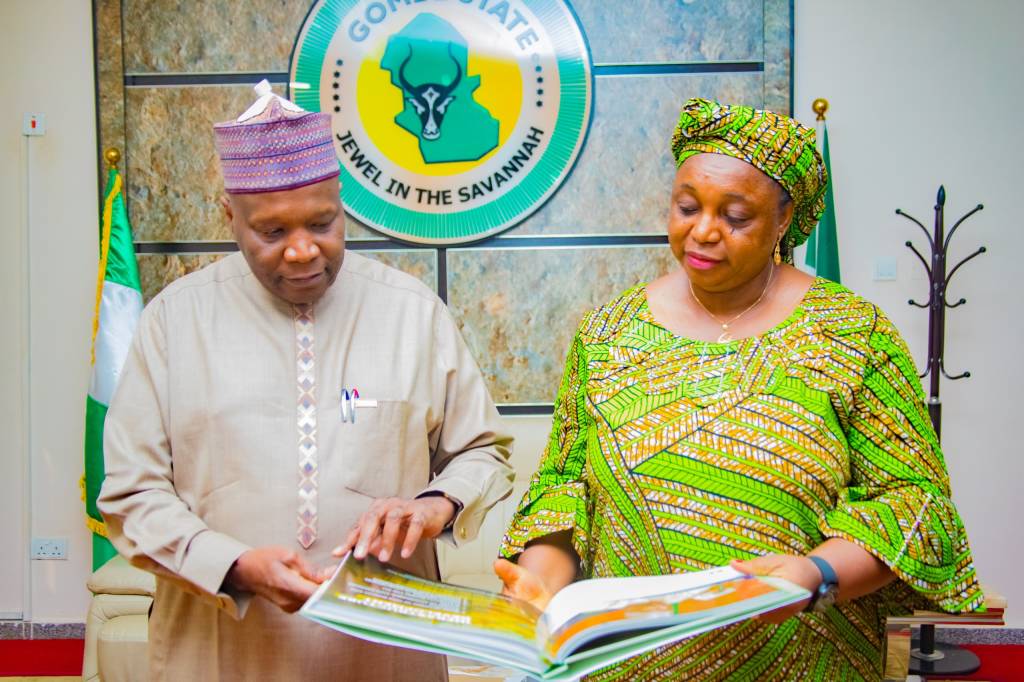
Building on Successes of Propcom, Propcom Mai-Karfi
Nigeria’s agricultural sector stands at a critical crossroad, challenged by escalating climate change impacts, declining productivity, and rising conflicts over land and natural resources. Propcom+ is stepping in to shift this trajectory. Building on the legacy of Propcom and Propcom Mai-Karfi, the new programme moves beyond simply boosting productivity to prioritizing resilience, environmental sustainability, and peacebuilding.
Dr. Adiya Ode, Country Representative and Political Director for Propcom+, says the programme builds on the lessons of its predecessors, supporting rural Nigerians to adapt to climate change and shift toward greener production systems. She said most of Nigeria’s rural conflicts stem from competition over land and water. By helping farmers and herders improve yields and productivity through enhanced technologies and practices, Propcom+ aims to reduce these tensions and foster rural economic growth.
“As a successor to Propcom Mai-Karfi, which itself followed the original Propcom, we focus not just on improving agricultural productivity but also building resilience to climate change. We are also keen on reducing conflict because many of the disputes in Nigeria today are about control over natural resources. By integrating livestock and crop improvements and using smart technology, we can reduce these tensions. We are also focused on reducing emissions and improving sustainability in how we produce commodities like cocoa and oil palm,” she told African Newspage.
Tackling Emissions, Preserving Forests
Agriculture is a major contributor to Nigeria’s greenhouse gas emissions, but some of the most damaging effects stem from deforestation, which diminishes the country’s carbon sink capacity. Recognizing the vital role of forests—especially in southern Nigeria—in combating climate change, Propcom+ is actively working to reverse deforestation and protect these critical natural assets.
These forests not only sustain biodiversity and rural livelihoods but also serve as vital carbon sinks, absorbing harmful greenhouse gases. Propcom+ aims to protect these ecosystems while promoting low-emission farming practices. By supporting forest-friendly commodity production and improving land-use planning, the initiative aligns with Nigeria’s international climate commitments.
“Our ask is: what are the alternative feeding or production patterns that reduce emissions. Nigeria has tropical forests in the southern belt that act as carbon sinks. It is not just about the emissions produced from agriculture; it is about avoiding deforestation to retain our carbon sink. Some forms of production don’t emit but limit our ability to absorb CO2, and we want to stop that. In the south, we are supporting policies, institutions, and private actors to ensure sustainable production,” Ode said.
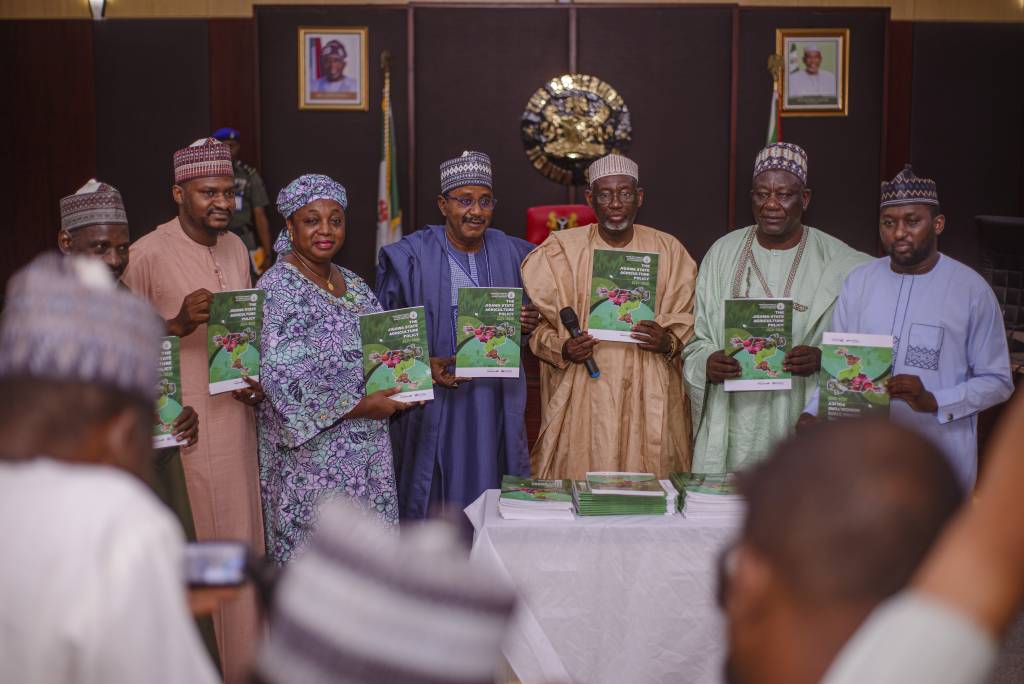
Climate-Smart Farming for Food Security
Propcom+ is tackling one of the root causes of agricultural underperformance in Nigeria: climate vulnerability. As Dr. Ode explains, unpredictable rainfall, frequent flooding, and shifting weather patterns have pushed many rural farmers deeper into poverty. With rain-fed agriculture accounting for the majority of food production in Nigeria, farmers remain highly exposed to the impacts of climate change.
To mitigate this, Propcom+ is investing heavily in climate-smart seed systems that can withstand drought, flood, and disease. The programme achieves this through collaboration with seed companies and local multipliers to distribute high-yield, fast-growing seeds. This approach not only ensures availability but also empowers farmers through community-led demonstrations and shared learning.
“In the last two years, floods and erratic rainfall have devastated livelihoods across Nigeria. When the rains don’t come, crops fail, and farmers fall into poverty. We are working with seed companies to ensure farmers get access to climate-smart seeds and also partner with seed companies to establish community seed multipliers who grow and distribute these seeds. Farmers see the benefits firsthand, and it also creates income opportunities within their communities,” Dr Ode told African Newspage.
Fostering an Inclusive Rural Economy
Propcom+ envisions more than just increased productivity and profit—it aims to build an inclusive rural economy where women farmers, children, and vulnerable communities benefit equally. With a strong focus on nutrition and food security, the programme is introducing bio-fortified crops like vitamin A cassava, iron pearl millet, and zinc rice—some of which are being introduced in Africa for the first time—to combat malnutrition, particularly among children.
Propcom+ has set ambitious goals: reaching 4 million farmers, at least half of them women, and ensuring they have access not only to inputs but also to markets, credit, and services that can help grow their incomes and improve their quality of life.
“By the end of the programme, we want over 4 million farmers to have increased incomes. We want to see thriving SMEs, vibrant markets, and households with better nutrition. We want over 50% of the farmers we reach to be women. We’re focusing on bio-fortified foods like vitamin A cassava and zinc rice to fight malnutrition. Agriculture should not be about charity. We want farmers to be respected economic agents who can live in dignity,” Ode urged.
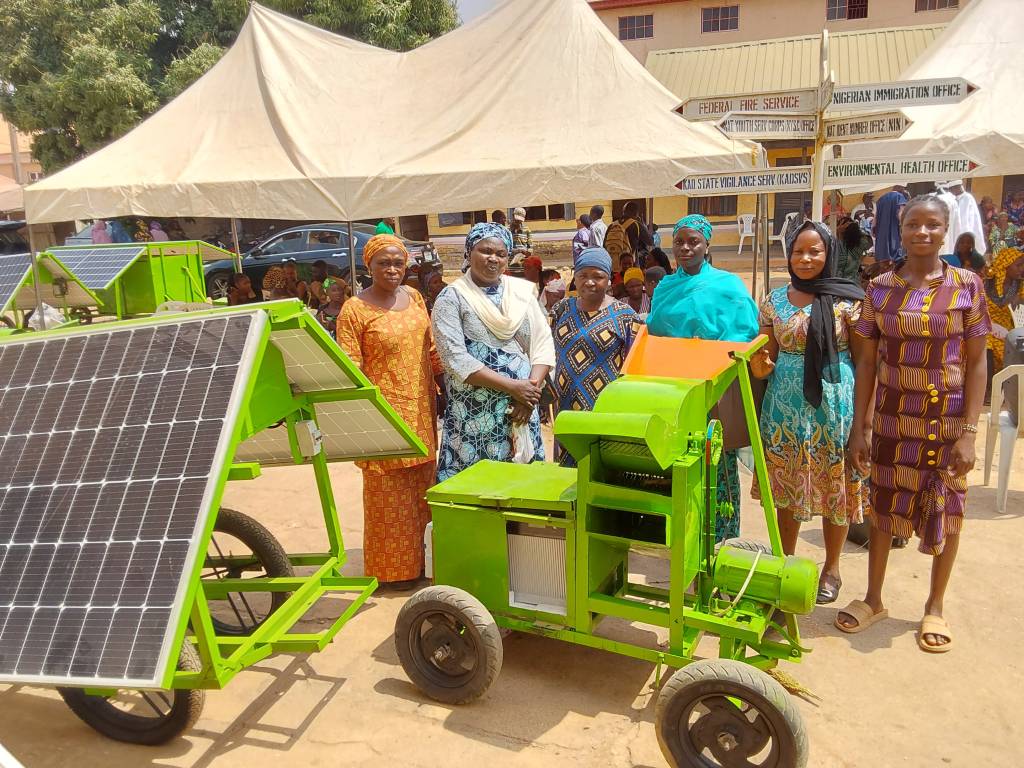
Private Sector as a Driving Force
Propcom+ sees the private sector as essential to achieving lasting change in Nigeria’s agricultural sector. While government support is important, Dr Ode insists sustainable transformation must be market-driven. Accordingly, the programme advocates policies that enable private actors to thrive in rural areas.
Ode says businesses across rural Nigeria, including private-sector seed companies, often face hurdles like poor infrastructure, insecurity, and limited financing, but they bring innovation and scale that public agencies often cannot sustain. By creating a more favorable environment for agribusiness, Propcom+ aims to build a self-sustaining agricultural ecosystem that works for farmers, SMEs, and investors alike.
“We can’t transform agriculture without the private sector. Government support is needed, but it’s the private sector that keeps rural economies alive. We want a market where farmers can easily access seeds, inputs, and services year-round. We advocate for an enabling environment to help the private sector overcome challenges like transport and finance. When rural businesses thrive, farmers thrive, and the entire economy improves,” says the Propcom+ Country Representative.
Partnerships for a Prosperous Future
Dr Ode emphasized that Propcom+ cannot achieve its ambitious goals alone. To create a lasting impact, the programme actively seeks partnerships with all levels of government, development partners, and the private sector. The overarching goal is to transform agriculture in Nigeria from a subsistence activity into a profitable, prosperity-driving venture that empowers rural communities and strengthens the national economy.
Propcom+ aims to build an agricultural sector that plays a significant role in Nigeria’s national development. Achieving this transformation in the rural economy will require shared responsibility, strategic investments, and bold, forward-looking leadership.
“The aim and objectives of Propcom+ are ambitious but very valid. We want agriculture to be seen as a business, not as charity. We need the government to create the right environment for this transformation to happen. Farmers must become empowered decision-makers in their own futures. Our goal is a Nigeria where rural livelihoods are resilient, secure, and prosperous,” Dr Ode concludes.



